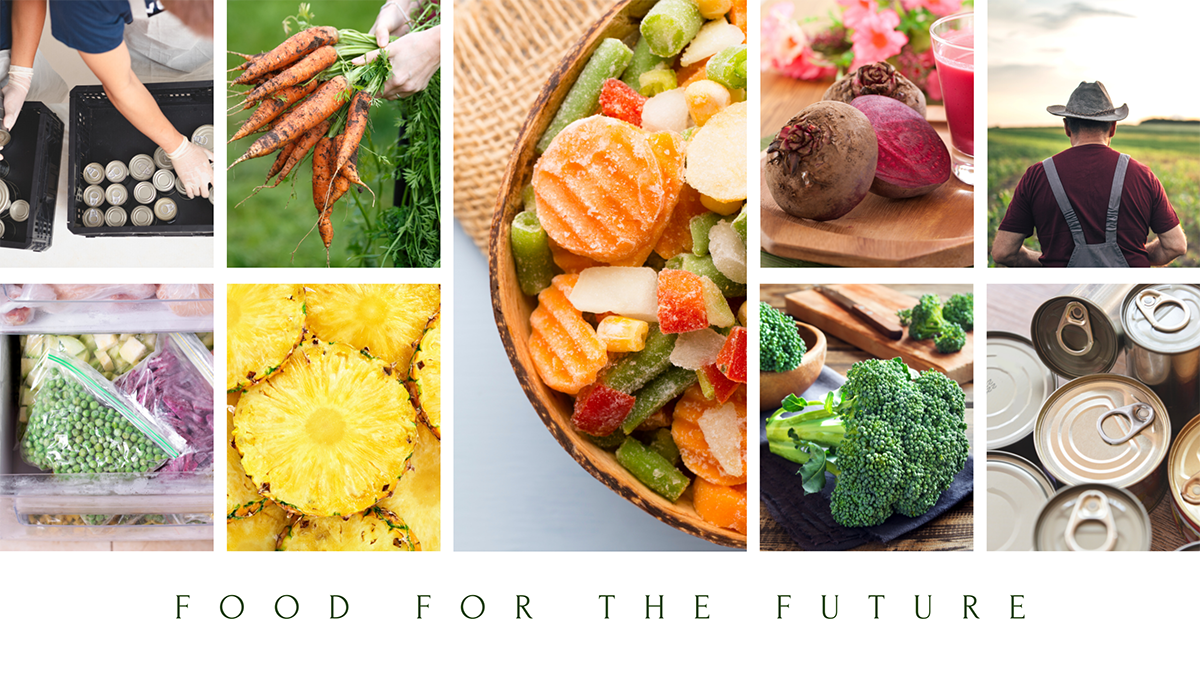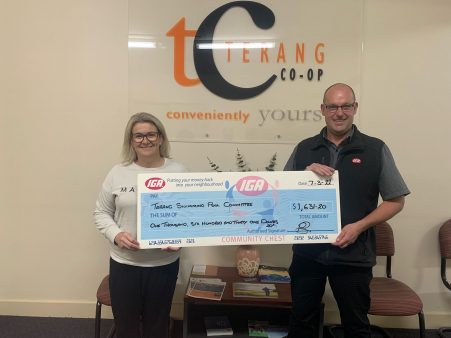How a new co-op is helping secure Australia’s food chain
The Lockyer Valley: Feeding Australia
A picturesque region between Toowoomba and Brisbane, the Lockyer Valley is a highly fertile agricultural region affectionately known as Queensland’s salad bowl. It’s blessed by ideal growing conditions – an aquifer provides a continuous supply of water, and the area is also supplied by the Wivenhoe Dam. Droughts and flooding do occur, but their impacts on local agriculture are significantly less than in other areas. The valley is even able to harvest two crops of vegetables each year and it is known for its abundant and fresh local produce. Rural journalist Michael Cavanagh joined Colin Dorber, Managing Director and CEO of Lockyer Valley Foods to hear about his patient and faithful wait to see a long-held dream come to fruition.
Around 13 years ago, local growers were devastated by the withdrawal of the Hines-owned local vegetable processing facility. Upon hearing their story, local Colin Dorber felt a deep conviction that he was to build a co-operative to support these local growers to process their product locally. After many patient years of planning, waiting and building, the co-operative has now been registered and plans are underway to construct a state-of-the-art processing facility, with the first soil due to be turned early in 2023.
With the co-op based in the small town of Withcott, 116kms to the west of Brisbane and at the base of the Great Dividing Range, Colin explains location is key: “we always determined we would build and be in the Lockyer Valley. We felt that we had an obligation to the community and to the vegetable growers and we've had chances to go elsewhere in the past and refused.” By enabling processing capacity within the Valley, the co-op will be able to service growers from the Darling Downs, the Lockyer Valley and Fassifern, while enjoying easy access to major transport hubs for distribution.
The structure of the co-op is innovative, involving both a commercial company (The Lockyer Valley Fruit & Vegetables Processing Company Limited, trading as Lockyer Valley Foods) and a co-operative (The Lockyer Fruit and Veggie Cooperative Ltd). The co-operative will be the majority shareholder of Lockyer Valley Foods, ensuring ownership remains in Australia. The co-op gives everyday Australians the opportunity to invest in Australian agriculture and support our future food security, with membership open to all Australians. Even the most city-minded folk can partner with Australian growers.
Members will be asked to take out a minimum $1,000 membership share, and membership will provide them with one vote in the co-operative. Membership also comes with an obligation to purchase $200 of product each year, allowing members to sample the fruits (and vegetables!) of their investment. Any company dividends will be returned to the co-op, and members will vote on how to use these funds, which could mean paying themselves a dividend as well as funding community scholarships and facilities. As with every co-op, the process will be democratic and transparent, following the principle of “one member, one vote”.
Trailblazing this new model of co-operative has been quite a rollercoaster and Colin had almost given up hope of securing the necessary approvals. But in a last-minute turn of events, after a lot of prayer from Colin and eleventh-hour work with a team of lawyers, an outgoing senior public servant ensured the co-op was approved five minutes before his retirement began.
The facility will process a range of vegetables and fruits, and as far as Colin’s concerned, is only limited by the collective imagination of the members, explaining “we absolutely believe that there are products not yet discovered … There are a million opportunities in the Valley.” Initially, there will be beetroot, pineapple, tomato and corn products, with the facility able to juice, can, powder, freeze and distribute fresh produce. There will be an emphasis on no-waste processing, which will bring new revenue to the region and even provide biofuel to power the plant. The market demand is strong, even in the absence of major advertising campaigns, and Colin is excited at the future possibilities. As he jokes, “any responsible Australian knows a hamburger is no good without beetroot”.
Colin is keenly aware of consumer expectations and market forces. The co-op will compete with imported products and as such must be financially competitive. The factory design is at the cutting edge of innovation: “we're doing something intelligent. We're building it using a principle of operating efficiency so that it can operate 24 hours a day, seven days a week. And we know that we can do it at a competitive price.” He also knows that consumers expect an environment-first approach to agriculture, and he shares that passion for sustainability. Colin explains that “we will recycle 100% of the water we use and two, we will have our own steam powered power facility on site. We will be off the grid by stage three of this project”. Colin is resolute that nothing will be wasted: “So our pledge is absolutely unequivocal, we will be producing our own power. We intend to have our own gas-powered fleet of trucks using the gas, the methane gas that we produce on site.”
Behind his unwavering commitment is a big heart for Australia and a belief in the ability of Australians to provide better outcomes for our future. “The way we are focused, it's all about Australia first and our board philosophy is local, regional, state, national and only look overseas for something if you can't get it in Australia,” explains Colin. He is also excited about what the project will mean for the local area. “We are confident that ultimately the full 500 plus jobs we will need over the next four years will be drawn from the Toowoomba, Darling Downs, Lockyer Valley, Fassifern, Scenic Rim areas and indeed people will move. This is a beautiful valley to live in … you can buy a beautiful home with land for less than $500,000 in the Lockyer Valley. They will all come when there's employment and schools.”
Colin is also passionate about the co-operative model. “I've always believed in the principle of the co-operative. … I've been exposed to a world where the existence of co-operatives is generally accepted, here in Australia we're a bit blind to them. But when you look worldwide, they are fantastically successful and I'm trying hard that this co-operative will be successful.” As he explains, “If it doesn't work, it won't be for lack of trying. It just needs Australians to say ‘$1,000, I can take that risk.’”
Given he’s successfully been converting people to become fans of his unique beetroot and peanut butter sandwich creation, there’s no doubt that Colin’s patience has been rewarded and his dream is now coming to fruition. We look forward to the renewal that this project will bring to its region and to Australia’s agricultural processing capabilities. Keep your eye out for Lockyer Valley Foods products on a supermarket shelf in the future!
Listen to our interview with Colin Dorber on our Meet the Co-op Farmers podcast.
Visit The Lockyer Fruit and Veggie Cooperative Ltd
(Beetroot photo Annemarie Schaepman on Unsplash)

Keep reading more stories

Kate Hage: Bridging the gap

Stephen Shepherd: Empowering co-operatives

